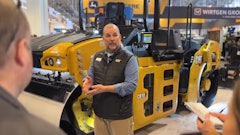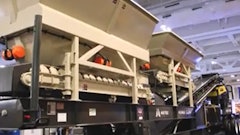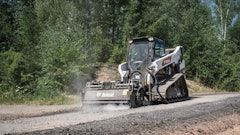At a time of year when most asphalt producers/contractors across the country wake up excitedly anticipating another busy and profitable construction season, the headlines of $115 a barrel crude oil (April 16), $4+ a gallon diesel fuel, $3.50 a gallon gasoline and the reality of an economic recession can make it difficult to climb out of bed.
The recession is real but the economy will eventually work through it. Higher petroleum prices are also real and unfortunately likely to remain high even after the real estate market and mortgage industry rebounds.
Consequently, asphalt producers/contractors will need to look for and establish long-term solutions to rising petroleum prices. Warm-mix asphalt technology will continue to gain interest and become a viable option for asphalt producers/contractors and their road agency customers. The asphalt industry continues to work with road agencies in demonstrating the benefits and performance characteristics of warm mix (See "Warm Mix Project Yields Valuable Research" on page 14).
For road agencies, warm mix is another way to maximize their budgets by choosing to let projects built with warm mix that requires less energy to produce. But the added and probably more significant benefit of specifying warm mix is the "green" impact of the technology. Producing asphalt at a lower temperature reduces the blue smoke emissions at the plant and during placement. When road agencies can tell their taxpaying constituents that they can deliver quality roads with a process that reduces energy consumption and is more environmentally friendly, the issue of sustainability and protecting the earth for future generations quickly elevates warm mix technology to "it's the right thing to do."
The green technology makes asphalt plants better neighbors, makes asphalt production and construction a safer and better place to work, and makes road agencies and contractors environmental stewards.
As with the current interest in expanding the use of reclaimed asphalt pavements (RAP), warm mix addresses the rising cost of materials and it also addresses the sustainability of resources that will be required to maintain and build roads in the future.
The industry embraces solutions that deliver the most cost-effective, highest quality product to their road agency customers and taxpayers who ultimately pay the bill. And the industry has always looked for ways to maintain its competitive edge when the cost of doing business continues to rise. But, most importantly, the asphalt industry is committed to sustaining the valuable resources required to maintain this country's infrastructure. Increasing the awareness and implementation of emerging trends, whether it is warm mix, RAP or any other viable solution, will be the continuous improvement process that propels the industry forward.


























